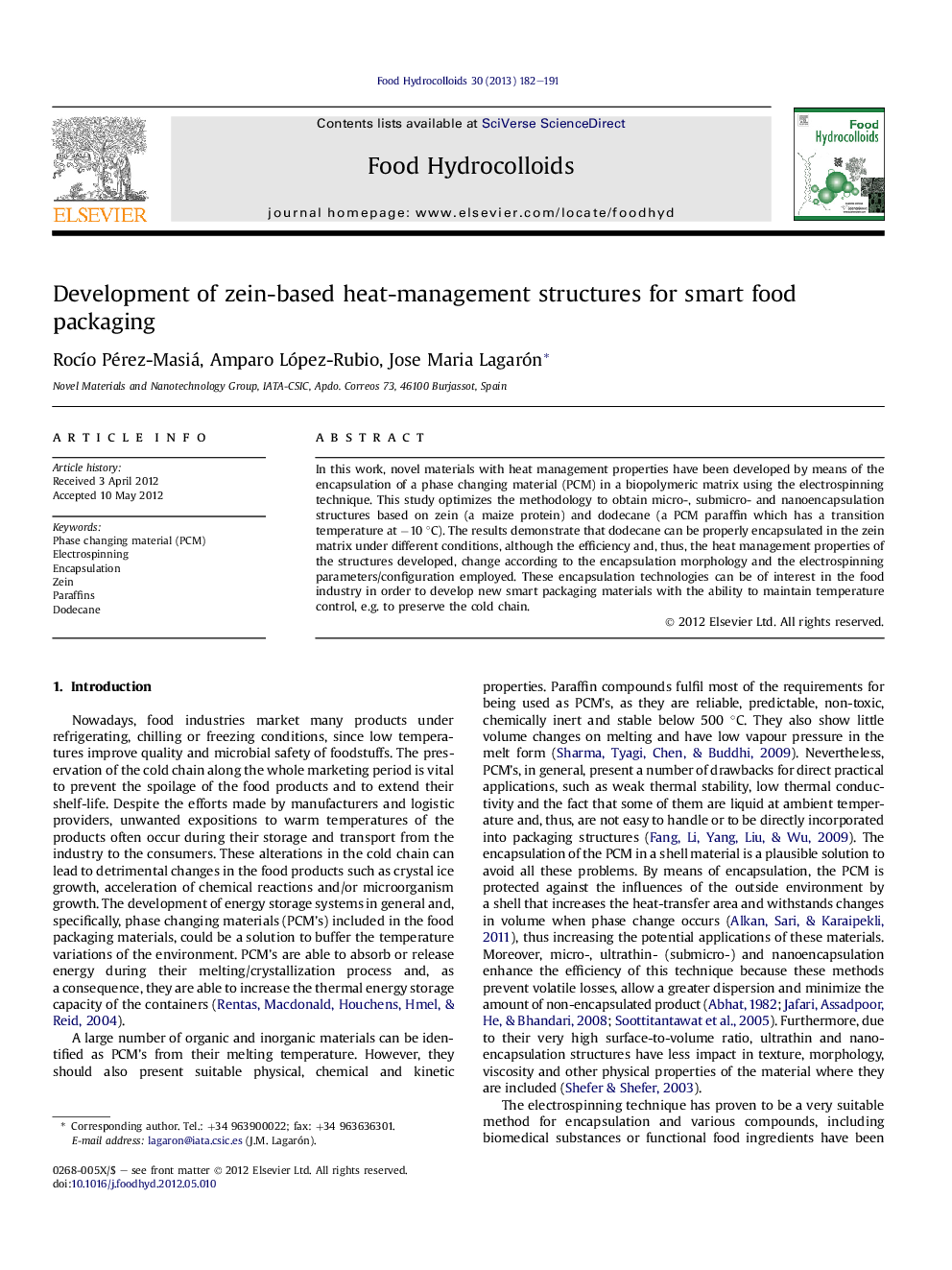| Article ID | Journal | Published Year | Pages | File Type |
|---|---|---|---|---|
| 604739 | Food Hydrocolloids | 2013 | 10 Pages |
In this work, novel materials with heat management properties have been developed by means of the encapsulation of a phase changing material (PCM) in a biopolymeric matrix using the electrospinning technique. This study optimizes the methodology to obtain micro-, submicro- and nanoencapsulation structures based on zein (a maize protein) and dodecane (a PCM paraffin which has a transition temperature at −10 °C). The results demonstrate that dodecane can be properly encapsulated in the zein matrix under different conditions, although the efficiency and, thus, the heat management properties of the structures developed, change according to the encapsulation morphology and the electrospinning parameters/configuration employed. These encapsulation technologies can be of interest in the food industry in order to develop new smart packaging materials with the ability to maintain temperature control, e.g. to preserve the cold chain.
Graphical abstractFigure optionsDownload full-size imageDownload as PowerPoint slideHighlights► Novel heat management materials were designed using electrospinning. ► Zein beads and fibres containing dodecane were obtained. ► Coaxial fibres showed the greatest encapsulation efficiency. ► Supercooling was reduced by adding a nucleating agent (tetracosane). ► The structures were stable after repeated cooling-heating cycles.
